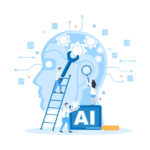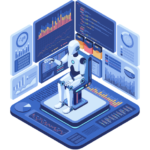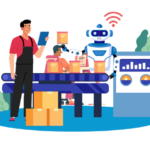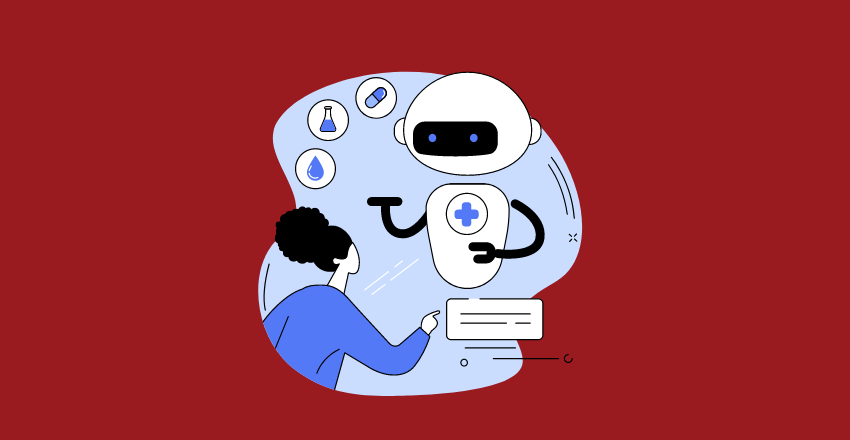
“How You Can Use AI in Your Company?” Embark on this insightful exploration, showcasing how AI can become a catalyst for your business’s exponential growth.
Artificial intelligence (AI) is transforming the business landscape, offering unprecedented opportunities for companies to optimize and streamline operations, enhance customer experiences, and drive growth.
Implementing AI in your business operations can have a significant impact, helping you stay ahead of the competition, improve efficiency, and unlock new value.
Understanding Artificial Intelligence
Artificial intelligence (AI) refers to the ability of machines to perform tasks that typically require human intelligence, such as learning, perception, problem-solving, and decision-making. AI technology is designed to analyze data, draw insights, and provide recommendations based on patterns and trends.
The concept of AI has been around for decades, but recent advancements in computing power, machine learning algorithms, and big data have made it more accessible and applicable to various industries.
AI can be applied to tasks such as speech recognition, image and video analysis, natural language processing, predictive modeling, and automation.
Applications of AI
AI has numerous applications in different industries, from healthcare to finance to manufacturing. For instance, in healthcare, AI can be used for medical diagnosis, drug discovery, and personalized treatment recommendations.
In finance, AI can help detect fraud, improve risk management, and automate customer service. In manufacturing, AI can optimize production processes, monitor quality control, and predict equipment failure.
For businesses, AI can provide valuable insights and assistance in making more informed decisions, improving operational efficiency, and enhancing the customer experience.
By analyzing data from various sources, AI can identify patterns and trends that might not be apparent to humans, thereby enabling better decision-making. Additionally, AI can automate routine tasks, freeing up employees to focus on higher-value activities.
Identifying Areas for AI Implementation
Artificial intelligence (AI) can have a significant and positive impact on various functional areas of a business. However, in order to effectively implement AI, companies must identify suitable areas for its application.
Here are some common use cases for AI:
| Functional Area | AI Use Case |
|---|---|
| Marketing | AI-powered customer segmentation for targeted marketing campaigns |
| Operations | AI-powered predictive maintenance to reduce equipment downtime |
| Customer Service | AI-powered chatbots for improved customer support |
| Human Resources | AI-powered resume screening to streamline recruitment processes |
Identifying the area(s) in which AI can have the most significant impact on a company depends on various factors, including the company’s goals, existing processes, data availability and quality, and customer needs.
Companies should also consider the potential benefits of AI in terms of increased efficiency, improved decision-making, and enhanced customer experiences.
It is important to note that implementing AI may require changes in existing processes and the acquisition of new data. Companies should also ensure that they have the necessary technical and human resources to integrate AI solutions effectively.
Implementing AI in Your Company
After identifying suitable areas for AI implementation in your company, the next step is to effectively implement AI. This requires careful planning and execution to ensure that AI tools and solutions are integrated properly into your existing systems.
Here are some key steps to follow:
- Collect and prepare data: Before implementing AI, it is important to ensure that data is properly collected and prepared. This includes identifying relevant data sources and cleaning and processing the data to ensure its quality and consistency.
- Choose the right AI tools or solutions: There are various AI tools and solutions available, each with their own strengths and limitations. It is important to carefully evaluate these options and choose the ones that best fit your business needs.
- Ensure proper integration: Once you have chosen your AI tools or solutions, it is crucial to ensure that they are properly integrated with your existing systems. This means testing and validating the system to ensure that it works as intended and that data is flowing smoothly.
Implementing AI can be a complex process but by following these steps, you can increase the likelihood of a successful implementation.
Overcoming Challenges in AI Implementation

Despite the potential benefits of implementing AI, companies often face challenges in the adoption process. Here are some common challenges and strategies for addressing them:
Data Quality
One of the key challenges in AI implementation is ensuring the quality of the data used to train the algorithms. Garbage in equals garbage out, so it is critical to have clean and accurate data. Companies can address this challenge by investing in data quality assurance and validation processes, as well as implementing data cleansing and enrichment techniques.
Ethical Use of AI
Another challenge is ensuring the ethical use of AI, particularly in sensitive areas such as hiring and customer profiling. To address this concern, companies should establish ethical guidelines and principles for AI use, as well as create oversight and governance structures to ensure compliance.
Resistance to Change
Implementing AI often requires changes in business processes, job roles, and organizational culture. To manage resistance to change, companies should involve employees in the implementation process, provide training and upskilling opportunities, and create a supportive and collaborative environment.
By proactively addressing these challenges, companies can increase the likelihood of successful AI implementation and reap the benefits of this transformative technology.
Measuring the Impact of AI Implementation
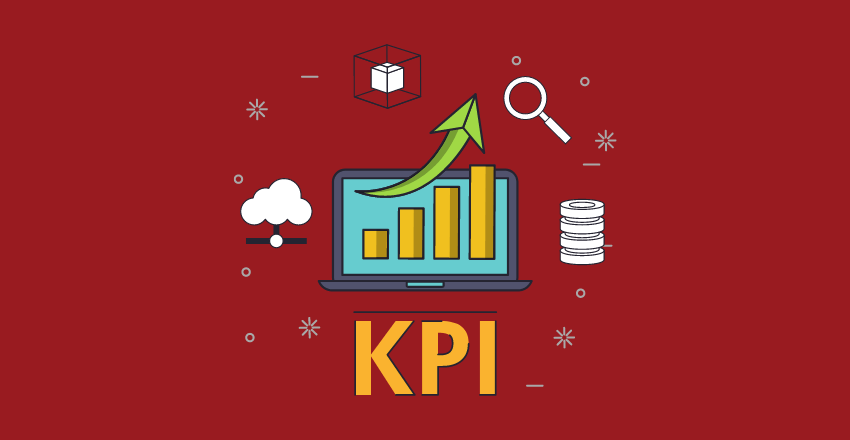
After implementing AI in your company, it’s essential to measure its impact and effectiveness. Without proper evaluation, it’s impossible to determine whether AI has brought the intended benefits and whether it’s worth continuing investment.
The following are key metrics and indicators that companies can track to measure the impact of AI implementation:
- Cost savings: AI can help reduce operational costs by streamlining processes and reducing errors. Companies can calculate the cost savings by comparing the expenses before and after AI implementation.
- Improved efficiency: Companies can track the time required to complete specific tasks before and after AI implementation. If AI has improved efficiency, it will result in a shorter time to complete tasks.
- Increased productivity: AI can help automate tasks and free up employees’ time, allowing them to focus on higher-value work. Measuring productivity can involve tracking the number of tasks completed per employee or department before and after AI implementation.
- Better customer experience: AI can help deliver personalized experiences, faster response times, and more accurate recommendations. Companies can measure the impact of AI on customer experience by tracking metrics such as customer satisfaction scores, customer retention rates, and repeat business.
Evaluating the ROI of AI initiatives is also crucial. Companies can use various methods to determine whether the benefits of AI outweigh the costs. These methods include cost-benefit analysis, net present value analysis, and return on investment (ROI) analysis.
It’s important to note that the impact of AI may not always be immediately apparent. It may take some time for AI to fully integrate into business operations and deliver the intended benefits. Therefore, it’s essential to have realistic expectations and to continue evaluating the impact of AI over time.
Training Employees for AI Adoption
One of the key factors in successfully implementing AI in a company is ensuring that employees are prepared and trained to work with the technology. AI adoption requires an understanding of the potential impact of AI on job roles and a willingness to adapt to change.
Here are some steps businesses can take to prepare their workforce for AI integration:
- Identify skill gaps: Companies should assess the current skill set of their workforce and identify areas of AI-related expertise that are lacking. This information can be used to implement a training program to fill those gaps.
- Provide training: Training programs can include online courses, workshops, and hands-on experience with AI tools. The training should focus on the practical applications of AI in the specific context of the company’s operations.
- Cultivate a learning culture: Encourage a culture of continuous learning by promoting collaboration and knowledge sharing among employees. This can be achieved by hosting regular training sessions, workshops, and events that promote learning and development.
- Appoint an AI champion: To ensure that AI adoption is successful, companies should appoint a leader or a team to champion the technology. This person or team should be responsible for driving AI adoption across the organization and providing support to employees during the transition.
- Monitor progress: Companies should track the progress of their workforce in adopting AI and regularly assess their level of proficiency. Feedback from employees can be used to refine the training program and make necessary adjustments.
By investing in training and development programs, companies can ensure that their employees are prepared for the future of work and equipped with the skills to succeed in a world with AI.
AI and the Future of Work
As AI technology continues to advance, many are concerned about its impact on the future of work. While it is true that AI may automate certain jobs, it is important to understand that it will also create new job roles and opportunities for skill development.
The reality is, AI technology will likely change the nature of work, rather than completely replace human workers. As machines take over repetitive or routine tasks, humans will be able to focus on more creative and complex work.
This may include developing and managing AI systems, analyzing data, and making decisions based on that analysis.
It is important for companies to start thinking about how they can integrate AI technology into their operations, while also preparing their workforce for the changes ahead. This may involve upskilling or reskilling current employees to work with AI systems, or hiring new talent with the necessary skills and expertise.
The Impact of AI on Jobs
While there is no doubt that AI will change the job market, the extent of the impact is still uncertain. Some experts predict that AI will create more jobs than it replaces, while others believe that it will lead to significant job losses in certain industries.
However, it is important to keep in mind that the impact of AI on jobs will vary depending on the industry and the specific job roles within it. Jobs that involve repetitive or routine tasks are more likely to be automated, while jobs that require creativity, critical thinking, and human interaction are less likely to be replaced by machines.
One potential benefit of AI is that it could help to create more inclusive work environments. For example, AI systems could assist individuals with disabilities to perform tasks that would otherwise be difficult or impossible for them to do independently.
Preparing for the Future of Work
For companies to stay competitive in the age of AI, they need to start planning for the future of work. This means identifying the skills and competencies that will be needed in the new work environment, and ensuring that employees are equipped with those skills.
It is also important to foster a culture of learning and experimentation, where employees are encouraged to continuously learn and adapt to new technologies and processes. This can help to create a workforce that is more agile and responsive to change.
Ultimately, the key to successfully navigating the future of work with AI is to strike a balance between the use of technology and the need for human workers. Companies that can effectively harness the power of AI while also investing in their workforce will be well-positioned to thrive in the new era of work.
FAQs about AI in Company Operations

As more and more companies consider implementing AI in their operations, it’s natural to have questions. Here are some common queries and their answers:
What exactly is AI?
AI stands for Artificial Intelligence. It refers to the simulation of human intelligence in machines that are programmed to perform tasks that typically require human intelligence such as visual perception, speech recognition, decision-making, and language translation.
How can AI benefit my company?
AI can help businesses streamline their operations, improve decision-making, enhance products and services, and offer personalized customer experiences. It can also help identify new opportunities and reduce costs, among other benefits.
Do I need to have a technical background to implement AI in my company?
No, you don’t need to have a technical background to implement AI in your company. However, it’s important to have a good understanding of AI and its potential applications. You should also seek the advice of experts and work with experienced partners that can help you identify the best AI solutions for your business.
How do I identify the right areas for AI implementation in my company?
To identify the right areas for AI implementation, you should start by reviewing your business goals and identifying areas that can benefit from AI. Look at areas where you can improve efficiency, reduce costs, and enhance customer experiences.
It’s also important to engage with employees and stakeholders to get their input and feedback.
What are some common challenges in AI implementation?
Some common challenges in AI implementation include data quality issues, cost and complexity of implementation, regulatory and ethical concerns, and resistance to change.
However, these challenges can be overcome by developing a clear strategy, investing in the right technology and talent, and engaging with employees and stakeholders throughout the process.
How can I measure the impact and effectiveness of AI implementation in my company?
To measure the impact and effectiveness of AI implementation, you should track relevant metrics such as ROI, customer satisfaction, and operational efficiency. You can also conduct surveys and focus groups to gather feedback from customers and employees.
It’s important to establish clear goals and expectations upfront, and to regularly review progress against those goals.
How can I train my employees to work with AI?
To train your employees to work with AI, you should first assess the skills and competencies needed for working with AI technologies. You can then provide training and development opportunities, such as online courses, workshops, and mentorship programs.
It’s also important to create a culture of learning and experimentation, where employees feel comfortable trying new things and sharing their experiences.
Will AI replace human jobs?
While AI may automate certain tasks and roles, it’s unlikely to replace all human jobs.
Instead, it’s more likely to augment and enhance human capabilities, creating new opportunities for collaboration and innovation. It’s important to plan for the future of work and invest in the skills and competencies that will be in high demand in a world with AI.
Jane Watson is a seasoned expert in AI development and a prominent author for the “Hire AI Developer” blog. With over a decade of experience in the field, Jane has established herself as a leading authority in AI app and website development, as well as AI backend integrations. Her expertise extends to managing dedicated development teams, including AI developers, Machine Learning (ML) specialists, and other supporting roles such as QA and product managers. Jane’s primary focus is on providing professional and experienced English-speaking AI developers to companies in the USA, Canada, and the UK.
Jane’s journey with AI began during her time at Duke University, where she pursued her studies in computer science. Her passion for AI grew exponentially as she delved into the intricacies of the subject. Over the years, she honed her skills and gained invaluable experience working with renowned companies such as Activision and the NSA. These experiences allowed her to master the art of integrating existing systems with AI APIs, solidifying her reputation as a versatile and resourceful AI professional.
Currently residing in the vibrant city of Los Angeles, Jane finds solace in her role as an author and developer. Outside of her professional pursuits, she cherishes the time spent with her two daughters, exploring the beautiful hills surrounding the city. Jane’s dedication to the advancement of AI technology, combined with her wealth of knowledge and experience, makes her an invaluable asset to the “Hire AI Developer” team and a trusted resource for readers seeking insights into the world of AI.


